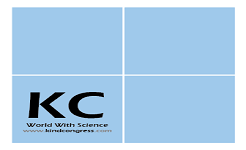Event Date
January 19-20, 2026
Venue
Vancouver, Canada
– Previous Conference Performers / Professionals From Around The Globe –
Media Partners/Collaborator
A huge thanks to all our amazing partners. We couldn’t have a conference without you!










Sponsors/Exhibitors
A huge thanks to all our amazing partners. We couldn’t have a conference without you!


Virology Conference 2026
The 30th Edition of the International Conference on Virology will be held on January 19–20, 2026, in Vancouver, Canada . This prestigious event brings together leading virologists, researchers, healthcare professionals, industry experts, and academicians from around the globe to exchange knowledge, present research findings, and discuss the latest innovations in the field of virology.
The conference will serve as a premier platform to explore diverse aspects of viral biology, emerging viral infections, vaccine development, antiviral therapies, molecular virology, viral pathogenesis, and epidemiology. With a strong focus on global health challenges, it will address critical issues such as pandemic preparedness, zoonotic viruses, diagnostic advancements, and strategies for controlling viral diseases.
In addition to keynote lectures by eminent scientists, the conference will feature interactive sessions, panel discussions, poster presentations, and networking opportunities that encourage collaboration across disciplines. Attendees will have the chance to share their expertise, gain insights into groundbreaking research, and foster partnerships that drive progress in virology and public health.
Set against the backdrop of Vancouver’s vibrant scientific and cultural environment , this edition promises to be an enriching experience for all participants. Whether you are an established researcher, an early-career scientist, a clinician, or an industry professional, the International Conference on Virology 2026 offers an invaluable opportunity to contribute to the advancement of viral research and its application to global healthcare.
Target Audience
- Directors, Board Members, Presidents, Vice Presidents
- Deans and Head of the Departments
- Business Entrepreneurs and Industrialists
- Microbiologist
- Virologists
- Parasitologist
- Bacteriologist
- Pharmacists
- Epidemiologists
- Dermatologists
- Neurologist
- Ophthalmologist
- Cardiologist
- Infectious Diseases Researchers, Scientists, Faculties, Students
- Infectious Diseases Associations and Societies
- Medical Colleges, Hospitals & Labs
- Pharmaceutical Companies and Industries
- Medical devises Manufacturing Companies
- Drug Manufacturing Companies and Industries
- Laboratory Technicians and Diagnostic Companies
Sessions and Tracks
Track 1: Molecular and Cellular Virology
Explore the fundamental mechanisms of virus replication, transcription, and translation within host cells. This track will highlight the latest findings on viral genome organization, protein interactions, host-virus signaling pathways, and the molecular basis of viral evolution.
Track 2: Emerging and Re-Emerging Viral Infections
This session focuses on newly identified viruses as well as the resurgence of well-known viral diseases. Topics include Ebola, Zika, Nipah, Influenza variants, and SARS-CoV-2, along with the ecological and epidemiological factors driving viral emergence.
Track 3: Viral Pathogenesis and Host Immune Response
Delve into how viruses invade host systems, evade immune defenses, and cause disease. Discussions will cover innate and adaptive immune responses, immune evasion strategies, and implications for therapeutic development.
Track 4: Vaccine Development and Immunization Strategies
A dedicated track for breakthroughs in vaccine research, including mRNA technology, viral vector vaccines, next-generation universal vaccines, and global vaccination strategies to combat pandemics.
Track 5: Antiviral Therapeutics and Drug Discovery
Learn about current and future antiviral therapies, drug resistance challenges, and innovative approaches such as RNA-based therapies, monoclonal antibodies, and host-targeted antivirals.
Track 6: Viral Genomics and Bioinformatics
This session will focus on the role of next-generation sequencing, metagenomics, and computational virology in understanding viral diversity, outbreak tracing, and precision medicine.
Track 7: Clinical Virology and Diagnostics
A practical track covering advances in point-of-care testing, molecular diagnostic techniques, serological assays, and biomarkers for early detection and clinical management of viral infections.
Track 8: Zoonotic Viruses and One Health Approach
Discuss the interconnectedness of human, animal, and environmental health in preventing viral outbreaks. This session will emphasize zoonotic spillovers, wildlife reservoirs, and strategies for global health preparedness.
Track 9: Virology in Cancer and Gene Therapy
Examine the role of oncoviruses in cancer development and the promising use of viral vectors in gene therapy, immunotherapy, and personalized medicine.
Track 10: Global Virology and Public Health Policy
This closing track will address the socio-economic impact of viral diseases, public health strategies, surveillance systems, pandemic preparedness, and the role of international collaborations in combating viral threats.
Track 11: Parasitic Infectious Diseases
Parasitic infections caused by protozoa and helminths contribute to substantial morbidity and mortality, particularly in impoverished tropical areas. Control measures include public health interventions, access to clean water, and deworming programs to reduce the burden of parasitic diseases.
Track 12: Viral Infections
Viral infections, characterized by rapid onset and often short-lived symptoms, encompass a wide range of diseases, including influenza and viral hemorrhagic fever. Effective prevention strategies involve vaccination, antiviral medications, and public health measures such as isolation and hygiene practices. Ongoing research is essential to stay ahead of viral mutations and emerging infectious threats.
Track 13: Recent Outbreaks and their Control
Despite the availability of vaccines, preventable infectious diseases can still cause outbreaks. Understanding the factors contributing to these outbreaks is crucial for implementing effective control measures. Rapid response, vaccination campaigns, and public health interventions play pivotal roles in containing and preventing the spread of infectious diseases during outbreaks.
Track 14: Pediatric Infectious Diseases
Pediatric infectious diseases refer to infections in children caused by bacteria, fungi, parasites, or other rare agents. Management involves specialized care, especially for those with immune disorders. Preventive measures, including childhood vaccinations, are crucial to reduce the incidence of infectious diseases in the pediatric population.
Track 15: Food and Water Borne Infections
Contaminated food or water can lead to various infectious diseases, with symptoms ranging from flu-like to gastrointestinal issues. Proper food handling, processing, and water treatment are essential for preventing food and waterborne infections. Public education on safe food practices is crucial to reduce the risk of outbreaks.
Track 16: Pulmonary and Chest Infections
Infections affecting the lungs or airways are known as chest infections. Viruses and bacteria can cause respiratory conditions such as pneumonia and bronchitis. Early diagnosis, appropriate treatment, and preventive measures, including vaccination against respiratory infections, are essential to manage pulmonary and chest infections.
Track 17: Dental and Oral Infectious Diseases
Oral infectious diseases occur in the mouth and the entrance of the digestive tract. Common infections include dental caries, periodontal diseases, and oral tissue membrane diseases. Periodontal infections are prevalent in adults and require proper oral hygiene practices, regular dental check-ups, and early intervention to prevent complications and maintain oral health.
These tracks cover a comprehensive range of topics within the field of infectious diseases, providing insights into prevention, diagnosis, and treatment strategies. Each track contributes to the collective understanding of infectious diseases, fostering collaboration and advancements in research and healthcare practices.
Market Analysis
The Infectious Diseases Conference in 2024 is anticipated to be a pivotal event, reflecting the ongoing challenges and advancements in the field of infectious diseases. Market analysis suggests a sustained demand for forums that address infectious diseases, given the persistent global threats posed by emerging infections, antimicrobial resistance, and the need for rapid responses to outbreaks.
The market for infectious diseases conferences is expanding due to various factors. The ongoing impact of the COVID-19 pandemic, coupled with the threat of other infectious diseases, highlights the importance of knowledge-sharing and collaboration among healthcare professionals, researchers, and policymakers. This conference is expected to attract a diverse audience, including infectious disease specialists, microbiologists, epidemiologists, and representatives from public health agencies.
Key drivers for the growth of this market include the continuous evolution of infectious diseases, the need for effective surveillance and diagnostic tools, and the development of novel therapeutics and vaccines. The Infectious Diseases Conference serves as a crucial platform for disseminating the latest research findings, discussing public health strategies, and fostering global collaboration to address infectious disease challenges.
Pharmaceutical companies, biotech firms, and diagnostic technology providers often leverage the conference to showcase their contributions to infectious disease management. As infectious diseases remain a significant global health concern, the market for conferences in this field is expected to witness sustained growth. The conference will likely play a vital role in advancing our understanding of infectious diseases and facilitating the collaboration necessary to mitigate their impact on public health.
– Tracks & Key Topics –
- COVID 19
- Microbiology
- Clinical Microbiology
- Microbes and Infectious Disease
- Virology
- Clinical Pathology
- Bacterial and Viral Vaccines
- Medical Microbiology
- Food Microbiology
- Industrial Microbiology
- Microbial Genetics
- Microbial Laboratory
- Mycology
- Bacteriology
- Diagnosis and treatment of infectious disease










































